Proceedings of the 8th World Congress
on Civil, Structural, and Environmental Engineering (CSEE 2023)
March 29 - 31, 2023 | Lisbon, Portugal
The keynote information for the 8th World Congress on Civil, Structural, and Environmental Engineering (CSEE 2023) is as follows:
Plenary Speakers
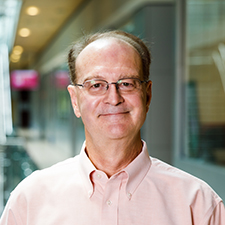
Dr. Bruce E. Rittmann
Arizona State University, USA
ICEPTP'23 Plenary Speaker

Dr. Surendra P. Shah
University of Texas at Arlington; Northwestern University, USA
ICSECT'23 Plenary Speaker
Keynote Speakers
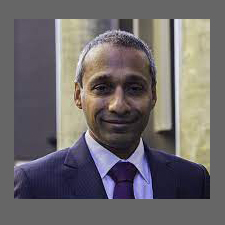
Dr. Arul Arulrajah
Swinburne University of Technology, Australia
ICGRE'23 Keynote Speaker

Dr. Mamadou Fall
University of Ottawa, Canada
ICGRE'23 Keynote Speaker
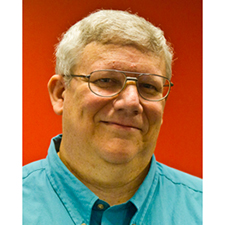
Dr. Leon Higley
University of Nebraska-Lincoln, USA
ICEPTP'23 Keynote Speaker
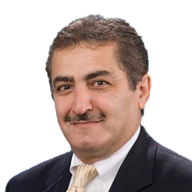
Dr. Ayman Mosallam
University of California, USA
ICSECT'23 Keynote Speaker
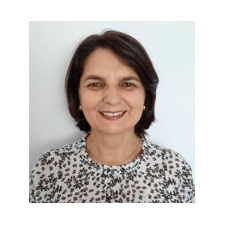
Dr. Margarida J Quina
University of Coimbra, Portugal
ICEPTP'23
Keynote Speaker
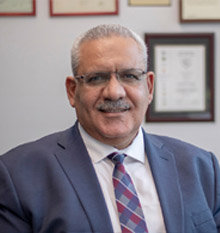
Dr. Khaled Sennah
Toronto Metropolitan University (formerly Ryerson University), Canada
ICSECT'23 Keynote Speaker
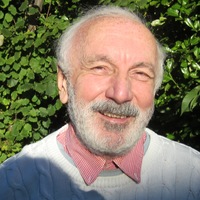
Dr. Zahari Zlatev
Aarhus University, Denmark
ICEPTP'23 Keynote Speaker

Dr. Bruce E. Rittmann
Arizona State University, USA
ICEPTP Plenary
Dr. Bruce E. Rittmann is Regents’ Professor of Environmental Engineering and Director of the Biodesign Swette Center for Environmental Biotechnology at Arizona State University. His research focuses on the science and engineering needed to “manage microbial communities to provide services to society.” Services include generating renewable energy, cleaning water and soil, and improving human health. Dr. Rittmann is a member of the National Academy of Engineering; a Fellow of AAAS, WEF, IWA, AEESP, and NAI; and a Distinguished Member of ASCE. Dr. Rittmann was awarded the first Clarke Prize for Outstanding Achievements in Water Science and Technology from the NWRI, the Walter Huber Research Prize and the Simon Freese Award from ASCE, the G.M. Fair Award from AAEES, the Perry L. McCarty/AEESP Founders Award, and the Camp Applied Research Award from WEF. He is the co-winner of the 2018 Stockholm Water Prize. Dr. Rittmann has published over 790 journal articles, books, and book chapters, and he has 21 patents. With Dr. Perry McCarty, Dr. Rittmann co-authored the textbook Environmental Biotechnology: Principles and Applications (McGraw-Hill Book Co.), which is now out in its second edition.
Topic of Plenary:
Destroying PFAS by Combining Nanoparticle and Microbial Catalysis

Dr. Surendra P. Shah
University of Texas at Arlington;
Northwestern University, USA
ICSECT'23
Plenary
Prof. Shah has been actively involved in concrete technology research for several decades. Prof. Shah’s research addresses a variety of topics in concrete materials science and engineering, including high-strength concrete, shrinkage measurement, nondestructive test methods to monitor properties ranging from setting time to the modulus of elasticity, and rheology of fresh concrete, self-consolidating concrete, and nanotechnology applications. He has made pioneering and groundbreaking contributions to the understanding of fiber-reinforced concrete, damage, and fracture, as well as developing innovative experimental techniques. He served as a Professor of Civil Engineering, at Northwestern University and founded NSF-funded Center for Advanced Cement Based Materials (ACBM) including the academic partners universities of Illinois, Michigan, Purdue, and NIST. This center has encouraged multidisciplinary research and established a new paradigm in materials science research for cement and concrete. In addition to teaching at Northwestern, he has taught at the University of Illinois at Chicago and served as a visiting professor at Massachusetts Institute of Technology (MIT), University of Sidney, Denmark Technical University, Delft University of Technology, National University of Singapore, Darmstadt Technical University and LCPC Paris. He has been an honorary professor at the Hong Kong Polytechnic University and L’Aquilla University in Italy, a guest professor at Southeast University, and the distinguished professor at the Indian Institute of Technology, Madras, and Jinan University China. He is an honorary academician at Dalian Maritime University and. Tongji University. He is a member of the Institute of Advanced Studies at the Hong Kong University of Science and Technology.
Topic of Keynote:
Climate Change and Innovations in Concrete Technology

Dr. Arul Arulrajah
Swinburne University of Technology, Australia
ICGRE'23
Speaker
Professor Arul Arulrajah leads the Geotechnical Engineering group at Swinburne University of Technology. He has been involved as a Chief Investigator in 39 research projects totalling AUD$15 Million, which includes 6 Australian Research Council (ARC) Linkage Projects grants, 1 ARC Industrial Training Centre, 3 ARC Linkage Infrastructure Equipment grants, 15 competitive state government grants, 6 industry grants and 2 international grants. Professor Arulrajah is involved in geotechnical engineering research topics which include: sustainable geotechnics, recycled waste materials, ground improvement, pavement geotechnics, railway geotechnics, land reclamation and dredging. Professor Arulrajah is the author of 1 book, 5 book chapters, 330+ journal publications and 100+ conference publications to date. He has an H-index of 66 in Google Scholar and 59 in Scopus. He has supervised 18 PhD students to completion as a principal supervisor and 9 as an associate supervisor.
Topic of Keynote:
Innovative Usage of Recycled Waste Materials in Roads

Dr. Mamadou Fall
University of Ottawa, Canada
ICGRE'23
Keynote
Dr. Mamadou Fall is a Full Professor of Geotechnical Engineering at the University of Ottawa (Canada), University Research Chair in Geotechnical Engineering, and the Head of the Department of Civil Engineering of the University of Ottawa.
Prof. Fall and his research team conduct leading-edge research in the geotechnical fields in close collaboration with the industry, major federal and provincial governmental institutions, and international partners. Over the years, his research programs have obtained substantial funding from a number of agencies and private companies, and findings of his research group have been used and implemented by the industry, key federal and national agencies, and numerous institutions or organizations worldwide. These research findings and impacts have been recognized by several awards and distinctions as well as have been broadcasted by national and international televisions. Prof. Fall is included in the World’s Top 2% Scientists list, published by Stanford University in 2021. Professor Fall has led the organization of numerous national and international workshops, seminars and conferences. He is regularly invited as a keynote speaker or lecturer at national and international conferences/events, and to participate in various expert committees. He regularly serves as a consultant and reviewer for scientific/expert committees, scientific journals and funding agencies, both nationally and internationally. He has authored or co-authored over 280 publications and trained over 85 highly qualified people (PhD, Postdocs, Masters).
Topic of Plenary:
Gas Generation and Migration in Deep Geological Radioactive Waste Repositories

Dr. Leon Higley
University of Nebraska-Lincoln, USA
ICEPTP'23
Keynote
Dr. Leon Higley is a Professor of Applied Ecology in the School of Natural Resources. His work is focused on insect ecology; however, he and his students have concentrated in four areas: (1) the ecophysiology of plant-insect interactions, with emphasis on photosynthesis and yield loss mechanisms, and applications through pest management decision making, (2) insect conservation biology, (3) decompositional ecology and forensic entomology, and (4) ecophysiology of insect extremophiles. Dr Higley received a BA in chemistry (Cornell University), MS in entomology (Iowa State University), and PhD with a double major in entomology and crop production/physiology (Iowa State University). He has served as subject or associate editor of 5 scientific journals, has co-edited or written 5 books, has written 22 book chapters, and is co-author of 125 peer-reviewed papers.
Topic of Keynote:
Reducing Environmental Pollution from Pesticides through Increasing Environmental Resistance and Reducing Use

Dr. Ayman Mosallam
University of California, USA
ICSECT'23
Keynote
Professor Ayman S. Mosallam is a Professor of Structural and Earthquake Engineering, also a Professor, Materials & Manufacturing Engineering Technology and the Director of the UCI Structural Engineering Testing Hall at the Civil & Environmental Engineering Department at University of California, Irvine (UCI). He is also a Fellow and a Control Member of the American Society of Civil Engineers and the Chairman of the International Committee of ASCE LA Chapter. He is a registered Structural Professional Engineer in the District of Colombia and has forty years of experience in structural engineering with a particular interest in polymer composites, green materials, structural health monitoring and repair and rehabilitation of historical buildings and bridges. He has established a graduate joint program between George Washington University and NASA as well as US Army Tank Division in Mount Vernon, Virginia. He is the developer of the first US Army smart assault bridge that is made of sandwich carbon/epoxy sandwich composites with an integrated optical fibersremote sensing nerve system. He has several patents on innovative building system and smart composite repair and joining systems. He is a member of ASCE Construction Institute Materials Directorate (Executive Committee) and a Control Member on the ASCE Structural Composites and Plastics Committee (SCAP). Professor Mosallam serves on the Technical Advisory Board of the International Accreditation Service (IAS). He has published over 500 technical papers, chapters, and reports on structural performance of structural systems and authored, edited and co- edited seven books in this area. He is the author of the ASC Design Manual for FRP Composites Connections (ASCE MOP 102) and the co-developer of the ASCE/PIC Prestandard Document on Structural Design of Pultruded FRP Composite Structures. He is serving on the editorial board of Composites: Part B Journal and Guest Editor for special issues on Infrastructure Applications for several journals including Composites Part B: Engineering, Reinforced Plastics and Composites Journal, Materials & Design, Journal of Smart Structures, Advances in Civil Engineering Journal and others. He is the Founder of the Egyptian Green Building Council and the principal author of the Green Pyramid Rating System (GPRS). Professor Mosallam is the recipient of numerous prestigious awards including the Outstanding Research Award from the International Conference of Composites Engineering, OCEC President’s Award, Best Design Paper Award from Composite Institute, the Industry Impact Award from McGraw Hill, Best Paper Award from SPI, and the Outstanding Engineering Educator of Year Award from American Society of Civil Engineers, among other numerous national and international awards. He has served as a senior engineering consultant to several international engineering and contracting firms including Flour-Daniel, Dames & Moore, Saudi Ben Laden Group, APATECH Russia, Khateeb & Alamy, EVG, Schnell House S.A., TEKTO International Group, JMV Group, Arab Studies, Nakheel (UAE), SOLIDERE s.a.l., and other governmental agencies such as FHWA, Ohio Department of Transportation, Oregon Department of Transportation, New York Department of Transportation, John Wayne Airport Authority, Southern California of Structural Engineering, Irvine Water Ranch, and many others.
Topic of Keynote:
Durable Pultruded Composites: A Myth or Reality?

Dr. Margarida J Quina
University of Coimbra, Portugal
ICEPTP'23 Keynote
Margarida J. Quina is Associate Professor with Habilitation at the Department of Chemical Engineering – University of Coimbra, Portugal. Her work is focused on waste and wastewater management aiming at developing circular economy and biorefinery approaches while ensuring environmental protection. The main technologies studied have been anaerobic digestion and composting for organic waste, while the recovery of nutrients and metals has been tackled through physical and chemical processes (e.g. adsorption, chemical precipitation, membranes, etc.). Studies involving ecotoxicity assessment of waste have been addressed to ensure environmental protection. She participated in more than 30 R&D projects and supervised several Master’s and Ph.D. theses. She is the author/co-author of over 100 peer-reviewed papers, 12 book chapters, 1 patent, and more than 120 communications in International Congresses.
Topic of Keynote:
Classification of Waste: Assessment of HP 14 Ecotoxicity

Dr. Khaled Sennah
Toronto Metropolitan University (formerly Ryerson University), Canada
ICSECT'23 Keynote
Dr. Khaled Sennah is a Professor of Structural Engineering at the Civil Engineering Department at Ryerson University, Toronto, Canada. Dr. Sennah, core area of expertise includes design, evaluation and rehabilitation of bridges on which he has more than 270 publications and supervised over 75 graduate students. He has demonstrated numerous evidences of impact and contribution to the economical design and sustainable construction that led to field applications and standards. Dr. Sennah’s research achievements have been recognized by international awards such as the 1999 Arthur Wellington Prize for best journal paper in transportation-related infrastructure and the 2002 State-of-the-Art in Civil Engineering award for best journal paper, both from the American Society for Civil Engineers, ASCE. Also, he received the 1998 and 2020 P.L. Pratley Award for best paper in bridge engineering and the 2013 A.B. Sanderson Award for “Outstanding Contributions by a Civil Engineer to the Development and Practice of Structural Engineering in Canada,” all from the Canadian Society for Civil Engineering. In recognition of his long-term achievements, he was elected Fellow of the Canadian Society for Civil Engineering (CSCE) in 2011, Fellow of the Engineering Institute of Canada (EIC) in 2016, and Fellow of the Canadian Academy of Engineering (CAE) in 2017. He is a member of a few Canadian Standard Association’s Technical Subcommittees for the development of the Canadian Highway Bridge Design Code. In 2022. Dr. Sennah was elected Fellow of the International Association of Advanced Materials (FIAAM), in recognition for his contribution to “Innovative Solutions in Structural Design and Construction”. Dr. Sennah has a long history of significant contributions to the Canadian Society for Civil Engineering (CSCE) through committee membership, membership and chairing of scientific committees of conferences, Chairing International conferences and chairing CSCE Structures Division and others. He is currently an Associate Editor for the Canadian Journal for Civil Engineering and an Editorial Board member of ASCE Journal of Composites for Construction.
Topic of Keynote:
Advances in the Canadian Highway Bridge Design Code for Analysis and Design of Bridge Superstructure

Dr. Zahari Zlatev
Aarhus University, Denmark
ICEPTP'23
Keynote
Zahari Zlatev received his MSc from the Sofia University and his PhD from the Sct. Petersburg University. He is now emeritus senior scientist at the Department of Environmental Science of Aarhus University, Denmark, where he worked during many years. He spent a sabbatical year at the University of Illinois at Urbana-Champaign.
Zahari Zlatev developed, together with several of his co-workers, the Unified Danish Eulerian Model (UNI-DEM), which is used by scientists from several European countries in many environmental and climate change studies. He participated in many international scientific projects.
Main areas of research: Scientific Computing, Applied Mathematics and Air Pollution Modelling (including here studying the influence of climatic changes on high pollution levels). Zahari Zlatev published seven monographs. He has been editor of many proceedings volumes and twenty special issues of international journals, has published 182 papers in international journals, 233 papers in proceedings of international conferences and more than 200 institutional reports.Zahari Zlatev has been involved in training young specialists; including graduated students and PhD students. Zahari Zlatev organized five international conferences. Moreover, Zahari Zlatev was one of organizers of sixteen mini-symposia at international conferences. He has been an invited speaker at 53 international conferences and many times a member of the organizing committee of international workshops and conferences.
Topic of Keynote:
Applying Digitalization of the Transport of Air Pollution Pollutants Over Europe in the Efforts to Study More Efficiently Some Dangerous Effects